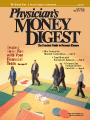Publication
Article
Physician's Money Digest
Understand SARS' Global Economic Threat
Author(s):
With the war in Iraq essentially over,a major roadblock to economic andstock market recovery is quickly movingbehind us. Unfortunately, a new andunexpected threat has surfaced. Thehighly publicized severe acute respiratorysyndrome (SARS) has begun to affect theeconomy of Asian countries and, mostrecently, Canada.
SARS DISEASE OVERVIEW
Let's look at what has happened so far.There have been over 5000 cases of SARS,resulting in over 300 deaths in 26 countries.Some Asian businesses have advisedworkers to stay home. Schools wereclosed in many areas. Taiwan has said thatit will close its borders to China andSingapore and quarantine people returningfrom those countries as well asCanada. The Centers for Disease Controland Prevention has issued warnings forAmericans concerning foreign travel.
Other good
news:
Presently, SARS has no known cure.However, Roche, the Swiss health caregroup, says it will introduce a SARS diagnostictest by the end of July. The number of new cases appearsto be on the decline in all countriesexcept China. Still, the economic impactin these countries and the global economycould be significant.
The health minister of Malaysia stated,"Should SARS continue to spread, theglobal economic consequences could begreat in a closely interconnected and interdependentworld." The most immediateeffect will be on the foreign travel andleisure industries. The SARS outbreak createsthe potential "perfect storm" for thealready battered airline industry, especiallythose airlines that have foreign routes.
IMPACT ON YOUR PORTFOLIO
It's impossible to say what lastingeffect, if any, SARS will have on the variouseconomies around the globe. If it isquickly brought under control, the effectshould be minimal and the Asian marketscould actually see a healthy bounceback once they get the clear signal.However, if the virus continues tospread, the economic impact could besubstantial. Thus far, there have been nodeaths related to the SARS virus in theUnited States, so we have been relativelyunaffected. With investors alreadyskittish after 3-plus years of stock marketdeclines, SARS represents another eventthat could further spook investors andpostpone market recovery.
So, how does all this SARS talk affectyou? It may be a good time to reviewyour investment portfolio to determineif changes are in order. If you're holdingforeign stock funds, you should monitortheir performance closely over the nextfew weeks. You may want to considermentally setting stop-loss points, notingthat if your fund drops below a certainlevel, you will sell it. More conservativeinvestors may want to consider reducingtheir holdings or moving out of foreignstocks altogether until the SARS situationhas been positively resolved.
Regardless of SARS' long-term effecton the global community, you should usethis issue as an opportunity to reviewyour portfolio to make sure your assetallocation is appropriate for your risk tolerance.Be sure to consult with yourfinancial advisor first.
Stewart H. Welch III, founder of
the Welch Group, has been
rated one of the nation's top
financial advisors by Money,
Worth, and Medical Economics.
He is also the coauthor of J. K.
Lasser's New Rules for Estate and Tax Planning
(John Wiley & Sons, Inc; 2001). He welcomes
questions or comments from readers at 800-
709-7100 or www.welchgroup.com. This
article was reprinted with permission from
the Birmingham Post Herald.
